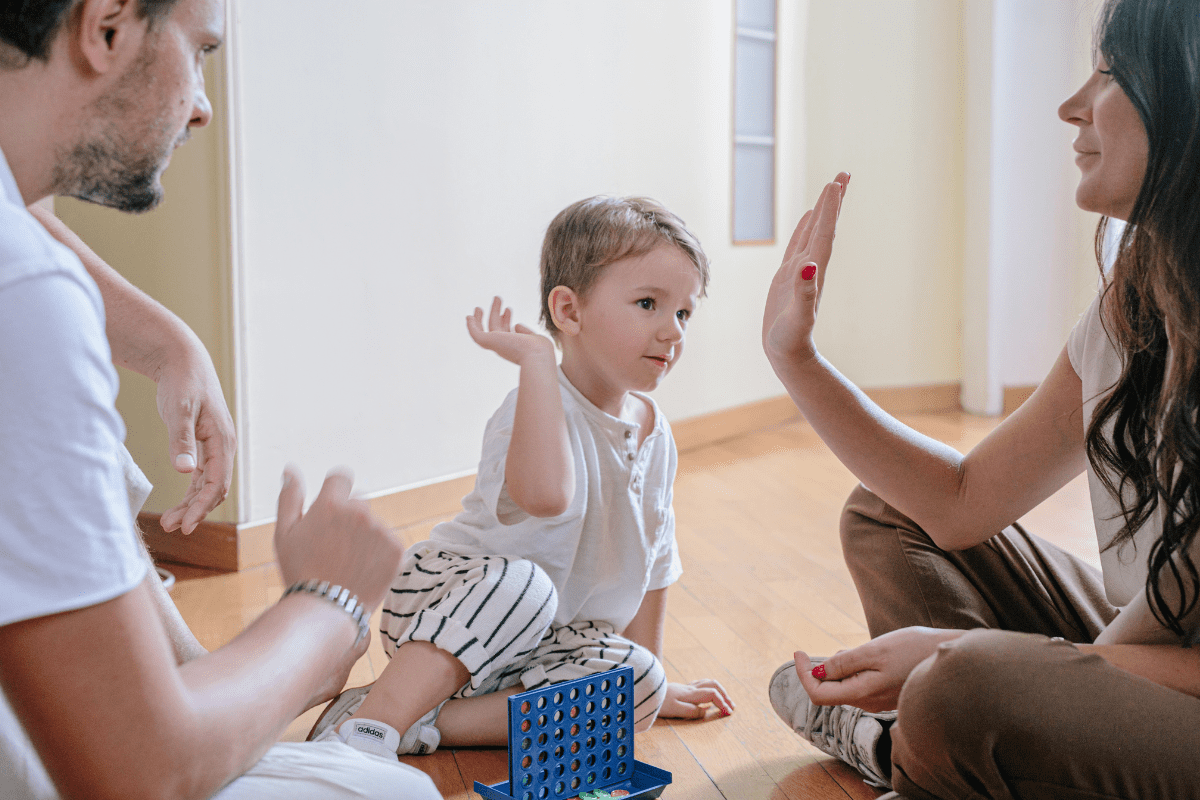Recommendation 1 – Read the Book Raising Human Beings
As a parent, raising a human being is undoubtedly one of the most fulfilling yet challenging tasks one can undertake. When I became a parent to my son Milan, I knew that I wanted to raise him to be a kind, compassionate, and confident individual. However, as with most parents, I found myself struggling to navigate the complexities of parenthood. That was until I stumbled upon the book Raising Human Beings by Dr. Ross Greene.
Raising Human Beings is an insightful and thought-provoking book that explores the art of raising children with empathy, compassion, and respect. Written by a renowned child psychologist, Dr. Ross Greene, the book provides practical and effective strategies that parents can use to foster positive relationships with their children and raise them to be emotionally intelligent and resilient individuals.
From the very first page, I found myself engrossed in the book, as Dr. Greene’s writing style is engaging and easy to follow. He uses real-life examples and anecdotes to illustrate his points, making them relatable to parents of all backgrounds. What I appreciated most about the book was Dr. Greene’s emphasis on building positive relationships with children. He argues that children who feel connected to their parents are more likely to be cooperative, open, and responsive.
One of the strategies that I have found particularly useful from the book is Dr. Greene’s collaborative problem-solving approach. This approach involves working with children to identify the underlying causes of their behaviors and finding mutually beneficial solutions. It encourages children to develop critical thinking skills and helps them feel valued and heard, ultimately fostering a sense of autonomy and self-worth.
I have implemented this approach with my son Milan, and the results have been remarkable. Instead of using punishments and rewards, I now work with Milan to find solutions that meet both of our needs. For example, when Milan was refusing to go to bed, I sat down with him, and we discussed why he was finding it challenging to fall asleep. It turned out that he was feeling anxious about an upcoming test at school, and he needed more reassurance from me. Together, we came up with a plan to incorporate relaxation techniques and mindfulness exercises into his bedtime routine, which helped him feel more relaxed and sleep better.
Another aspect of the book that I found particularly valuable was Dr. Greene’s emphasis on empathy and emotional regulation. He argues that children who learn to identify and regulate their emotions are more likely to be successful in all areas of life, from school to social relationships.
One of the ways I have implemented this with Milan is by helping him identify and label his emotions. When he is feeling upset or frustrated, I encourage him to name the emotion he is feeling and talk to me about why he feels that way. By doing so, I am teaching him to regulate his emotions and cope with them in a healthy way. I have noticed a significant improvement in his emotional intelligence since we started this practice.
Overall, Raising Human Beings has been an invaluable resource for me as a parent. It has taught me to approach parenting with empathy, collaboration, and understanding. The book has also helped me develop a deeper connection with my son and has given me practical tools to help him navigate the complexities of childhood.
In conclusion, I highly recommend Raising Human Beings to all parents who are looking for effective and compassionate ways to raise their children. Dr. Greene’s approach to parenting is refreshing and inspiring, and his strategies are grounded in research and real-life experience. I am grateful for this book and will continue to use it as a guide in my parenting journey.
Recommendation 2 – Research and Watch Youtube Videos On Gabor Mate.
I am fascinated by the field of child psychology and the many insights it offers into the development of our children. One of the foremost experts in this field is Dr. Gabor Mate, whose work on the causes and treatment of ADHD has been particularly illuminating.
Dr. Mate’s teachings emphasize the importance of understanding the whole person in order to truly help them. He believes that we must look at a child’s physical, emotional, and social needs in order to understand their behavior and provide effective support.
One of the most interesting discoveries Dr. Mate has made is the link between childhood trauma and ADHD. He has found that children who experience trauma, such as abuse, neglect, or a dysfunctional family environment, are more likely to develop ADHD symptoms. This makes sense, as trauma can lead to chronic stress, which can affect brain development and lead to difficulties with attention, impulse control, and hyperactivity.
Dr. Mate’s research also highlights the importance of attachment in early childhood. He believes that secure attachment with a primary caregiver is essential for healthy development and that children who lack this attachment are more likely to develop ADHD and other behavioral problems. This underscores the importance of nurturing and responsive parenting, especially in the early years of a child’s life.
Another key aspect of Dr. Mate’s teachings is the importance of a healthy lifestyle. He believes that nutrition, exercise, and sleep are essential for optimal brain function and behavior. He has found that many children with ADHD have nutritional deficiencies, such as low levels of omega-3 fatty acids, and that supplementing with these nutrients can improve symptoms.
Dr. Mate’s approach to ADHD treatment is also different from traditional approaches. He believes that medication should be used as a last resort and that behavioral and lifestyle interventions should be the first line of treatment. He emphasizes the importance of identifying and addressing underlying causes, such as trauma, attachment issues, or nutritional deficiencies, and believes that addressing these issues can lead to long-term improvement in ADHD symptoms.
Overall, I am fascinated by Dr. Mate’s teachings and his approach to ADHD treatment. His emphasis on understanding the whole person, addressing underlying causes, and promoting a healthy lifestyle aligns with my own beliefs about child development and parenting. I believe that his insights can help parents and educators better understand and support children with ADHD and other behavioral issues.
In conclusion, Dr. Gabor Mate’s work on child psychology and ADHD is a valuable contribution to the field of psychology. His teachings emphasize the importance of understanding the whole person, addressing underlying causes, and promoting a healthy lifestyle. By taking a holistic approach to ADHD treatment, we can help children with this condition reach their full potential and lead fulfilling lives. As a parent, I am grateful for Dr. Mate’s insights and will continue to incorporate them into my own parenting practices.












